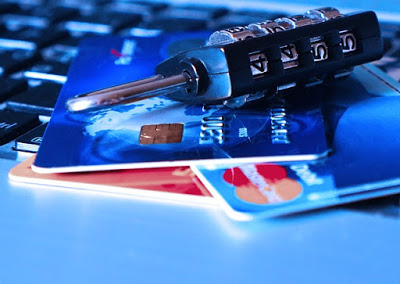In some scenarios, a credit freeze may seem like a lifeline. Freezing your credit allows you to restrict access to your credit report, so that unwanted parties, namely identity thieves, can’t see your account. It’s more or less a security tool, a helpful one in a world where cyber hacks and fraud can threaten your finances.
But it’s not something to use haphazardly. Credit freezes are best used for specific purpose. It’s also important to know what steps to take before you decide to freeze your credit profile.
When Should You Do a Credit Freeze?
As alluded to in the intro, the best time to freeze your credit is during an emergency – namely a security breach. For example, the infamous Equifax data breach of 2017 was a good example of this. In fact, people all across the country opted for credit freezes in an attempt to protect their data.
Now breaches of such magnitude don’t happen all the time, but individual cases may still necessitate a credit freeze.
A good example of this is when someone becomes the target of an identity thief. Perhaps, the victim attempts to apply for a loan, knowing they have good credit but then gets denied. Or they receive collection calls for overdue accounts they didn’t even open. It would seem that they are targets of ID thieves. In such cases, a credit freeze would be crucial to prevent further damage to one’s financial health and even their well-being.
Another example, with less serious consequences, could be that of unauthorized credit pull. For example, at the checkout aisle in a retail store, the cashier may offer you a store card or account. This could likely result in a credit pull and you may not notice it until you apply for credit somewhere else.
If you have multiple unauthorized credit pulls from one company, this can affect your score. In this case, a credit freeze would prohibit access so that particular company can’t make any further inquiries.
So the main purpose is to prevent the meddling hands of unwanted creditors from peeping in and reviewing your credit profile. It’s almost like putting an encryption on a digital folder or wireless router.
When Not to Freeze Credit
Now a credit freeze, although helpful in certain situations, isn’t perfect. It seals off your credit report from identity thieves, but they can’t protect you if a thief steals information on an existing account. In such cases, you’d have to change your account details completely.
Another thing to consider is the duration of the freeze and whether you want to apply for credit in the near future. A credit freeze means that no one can see your credit, so you won’t be able to apply for a loan, credit card or any other account as long as your credit is frozen.
An alternative to a credit freeze is a fraud alert. This tool doesn’t prohibit anyone from accessing your credit profile, but alerts the bureaus and lenders that you may have a compromised credit report.
How to Freeze Your Credit if Necessary
So now, an answer to the big question – how do you freeze your credit? Well, it takes a few steps to do so. It is a process.
- The first step to freezing your credit is contacting all three credit bureaus. It’s essential to register your credit freeze with all three because they each keep your information separate from each other.
- To register your credit freeze, you can either submit your information online or you can call them directly.
- You’ll receive a PIN which is the key to unlock your freeze. It is absolutely important that you DO NOT LOSE this PIN, or else you cannot lift the freeze.
- Also be prepared to pay a small fee to each agency to freeze your credit. The cost of the will vary from state to state.
With the freeze, there are some stipulations to remember:
- Some organizations can still access your credit profile despite the freeze (such as government institutions)
- Your report can still be released to creditors or debt collectors
- Credit freezes in no way change your credit score
- You can still apply for new credit accounts but you must first lift the freeze
- You can still see your annual credit report
Lifting the Credit Freeze
Now a credit freeze is not forever. Sooner than later, you’ll want to lift the freeze especially if you want to apply for a loan or credit card. Keep in mind too that a credit freeze lasts for seven years unless you lift it.
There is some flexibility with credit freezes since you can temporarily lift them. For example, if you’re applying for a new job or signing a contract with a landlord, you will want to leave your credit profile available for review.
In these cases, you would contact the credit reporting agency and request a lift. Once the request is placed, the agency would have no more than three business days to unfreeze your credit. Remember also that you can only lift the freeze with your PIN, so DON’T LOSE IT!
Benefits of a Credit Freeze
It’s important to reiterate that credit freezes aren’t perfect. They can’t protect you from a thief who already has access to your accounts, but they can’t prevent said thieves from accessing your profile to apply and open more accounts. With that said, a credit freeze has some undeniable benefits.
A Summary of Credit Freeze Benefits
- Prevents further abuse of your information – Since the freeze completely locks access to your account, no one can open new accounts in your name.
- Gives you room to breathe – Knowing that no one can access your credit profile any further can relieve some stress, and allow you to focus on other tasks needed to stop fraudsters in their tracks.
- Relatively low-cost solution – The cost to register a credit freeze per agency costs ranges from $10-$20, making it a low-cost means to prevent further damage to your credit. In some states, victims of identity fraud pay no fee at all.
- Control over a credit freeze – With a credit freeze, you decide when you want to lift it.
- Quick turnaround time – Unlocking a credit freeze takes no more than three days and can happen as quickly as 15 minutes.
Credit Freezes Are Helpful When Used Purposefully
If you are dealing with potential identity theft or fraud of your account, then a credit freeze can help you put a stop to future damage to your profile. And that’s a vital step to take considering how much of a ripple effect your credit score generates.
What’s more important is that it gives you a degree of stress relief, so that you can monitor other things such as your account activity. Just remember that a credit freeze has its limits, which you should keep in mind as you apply or lift the freeze.
With this tool in place, you can prevent your credit score from crumbling in the hands of criminals.

